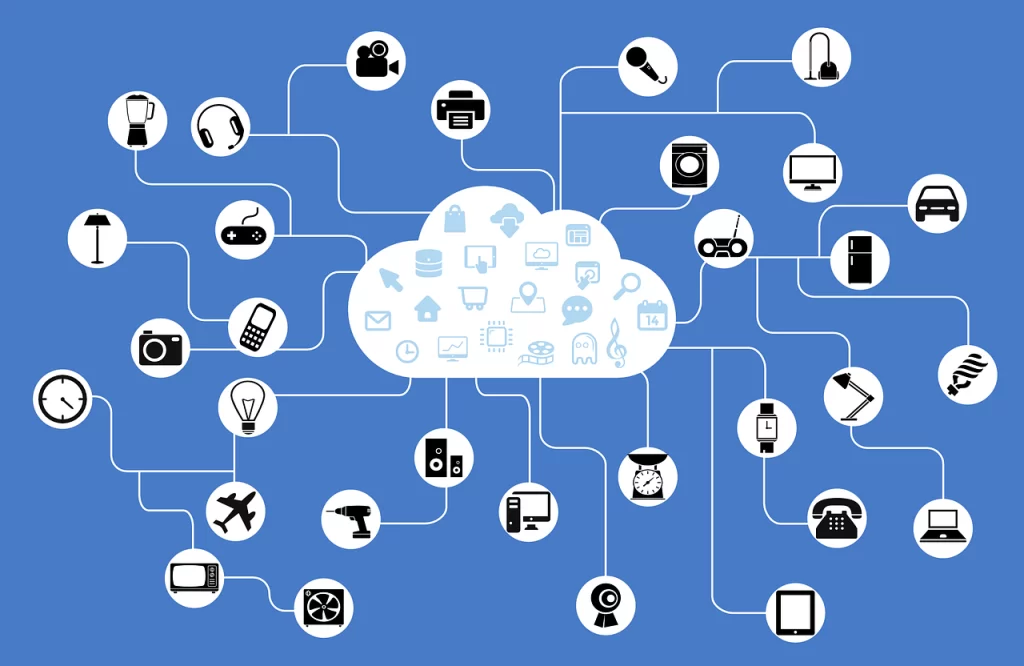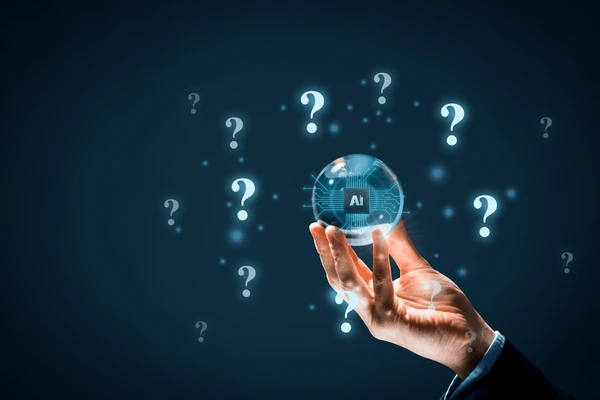The Internet of Things (IoT) refers to the network of interconnected devices embedded with sensors, software, and other technologies to exchange data and communicate with each other via the internet. It encompasses a vast array of devices, from everyday objects like smartphones, wearable devices, and home appliances to more specialized machinery used in industries, creating a seamless and interconnected ecosystem.
Potential of IoT

Efficiency and Convenience: IoT offers unparalleled convenience and efficiency by automating tasks and processes. Smart home devices, for instance, enable users to control lights, thermostats, and security systems remotely, enhancing convenience and energy efficiency.
Improving Healthcare: In healthcare, IoT devices such as wearables and remote monitoring tools allow for real-time health tracking and data collection. This can assist in proactive patient care, remote patient monitoring, and timely interventions.
Industrial Revolution (Industry 4.0): IoT is a cornerstone of Industry 4.0, facilitating the integration of machinery, analytics, and automation in manufacturing. This enables predictive maintenance, improved efficiency, and cost reduction.
Environmental Impact: IoT devices can contribute to sustainability efforts by optimizing resource consumption, monitoring environmental conditions, and enabling smart city initiatives for better waste management, energy conservation, and pollution control.
Challenges of Securing IoT Devices
Lack of Standardization: The IoT ecosystem comprises devices from various manufacturers, often operating on different protocols and standards. This diversity poses challenges for establishing universal security measures.
Vulnerabilities and Cyber Threats: Many IoT devices have limited computing power and may lack robust security features, making them susceptible to cyber attacks. These devices, if compromised, can become entry points for hackers to infiltrate larger networks.
Data Privacy Concerns: IoT devices collect vast amounts of data, raising concerns about the privacy and security of this information. Unauthorized access to sensitive data could lead to identity theft, breaches of personal privacy, or misuse of personal information.
Lifecycle Management and Updates: IoT devices often have long lifecycles, and some may not receive regular software updates or security patches, leaving them exposed to emerging threats.
Impact on Our Lives

Enhanced Connectivity: IoT has revolutionized how we interact with technology, providing seamless connectivity and integration between devices, simplifying tasks, and improving overall quality of life.
Improved Efficiency and Productivity: In various sectors, IoT-driven automation and data analytics have improved efficiency, reduced costs, and enhanced productivity by providing real-time insights and predictive analytics.
Transformation of Industries: IoT is transforming industries by enabling smarter processes, predictive maintenance, and data-driven decision-making, contributing to increased competitiveness and innovation.
Challenges and Opportunities: While IoT presents immense opportunities, it also poses challenges related to security, privacy, and ethical considerations. Balancing these concerns is crucial for maximizing the benefits of IoT while minimizing risks.





Leave a Reply